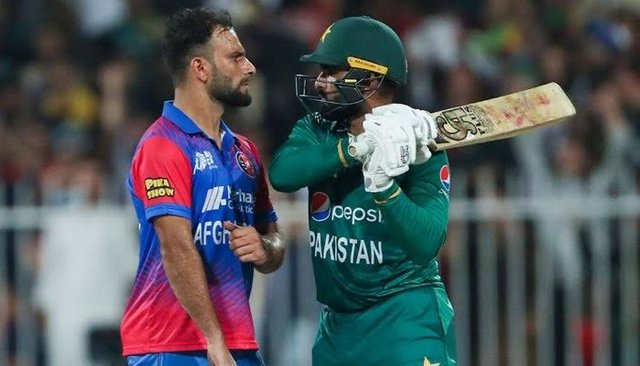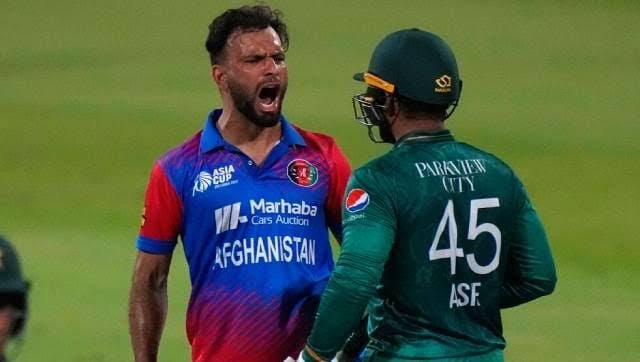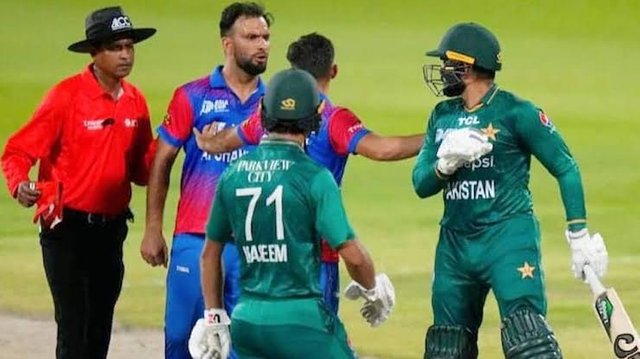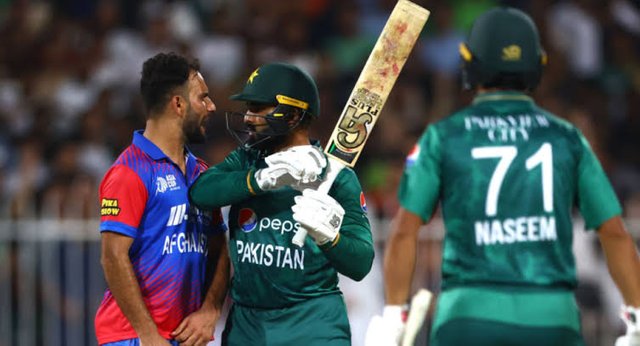A rivalry spilling over from boundaries beyond cricket..
There is something to the cricketing rivalry between Afghanistan and Pakistan that is as compelling as any iconic sporting contest in the world. It may lack the grandeur and history of the Ashes or the intensity and romanticism of India-Pakistan matches, but it is no less dramatic and passionate. Like any seminal contest, it is driven by influences of history, tradition, culture, and even politics and geopolitics.
.jpeg)
Dispensing with political correctness, the players regard themselves as genuine competitors rather than mere sporting adversaries. Comments from Pakistani legends such as Javed Miandad and Shahid Afridi have intensified the rivalry, spilling these differences into the stands and leading to brawls and fights among fans, who are as passionate as they are diverse and colorful.
Much like the Line of Control (LOC) that separates India and Pakistan, there exists a demarcation known as the Durand Line that divides India's western neighbours. Over the years, the Afghan governments have consistently refused to recognize it. Consequently, when the cricket teams of these nations clash, political and geopolitical undercurrents permeate both the players and fans. Incidents of crowd disturbances have been frequent in locations such as Sharjah, and as recently as during the Asia Cup in Sri Lanka.
.jpeg)
There was also an instance of Najam Sethi, a former chief of the Pakistan Cricket Board (PCB), asking Afghan fans to behave themselves. Sethi had famously made this statement before the T20I series in March of this year. "I had a chat with Afghanistan officials in Dubai about crowd control and their players' behaviour. What is the guarantee about managing your fans and players, because past experiences haven't been good. We told the Afghanistan Board to control their players. Winning and losing is part of the game." This did not go down too well within the ACB.
Similar comments from Afridi were also received with condemnation in Afghanistan. "My advice to the young player was simple, play the game and don't indulge in abusive talk. I have friends in the Afghanistan team and we have very cordial relations. Respect for teammates and opponents is the basic spirit of the game." Afridi once told Naveen-ul-Haq after the Afghan bowler had a bust-up with Mohammad Amir. The post went viral after Naveen's spat with Virat Kohli after an IPL game between RCB and LSG last IPL.
.jpeg)
"Pakistan believes it is the birthplace of Afghan cricket," Noman Mirza, an erudite Afghan cricket analyst, tells Cricbuzz. "It may be true to some extent as the first generation of Afghan cricketers did learn the sport there. However, as Afghanistan continued to rise through the ranks of the cricketing world rapidly, it didn't get much assistance that it expected from the PCB and therefore, did most of the hard work through its own sheer commitment, passion and dedication,"
The perception of the unfriendly nature of the cricket teams is mainly due to tensions elsewhere. "I believe it is actually the continuation of political tensions between the two countries over the years," explains Mirza. "I also believe it has become so intense because of Pakistan's superiority complex as they can't fathom a team like Afghanistan -- who they feel have learned cricket in Pakistan -- to beat them at the international stage. This superiority is so evident that even their former Players and legends like Shoaib Akhtar, Javed Miandad, etc have publicly stated about the Afghan players having learned the game in Pakistan."
.jpeg)
Mirza thinks the Pakistan establishment, the cricket establishment mainly, did not support the side."Furthermore, the ACB was assisted by the BCCI later on in its journey as they provided them with home grounds and facilities and drafted Afghan players to play in the IPL. Pakistanis have always seen the bonding and close ties of Afghanistan and India from a skeptic lens. So that might also have fuelled it to a minor extent," he believes.
Raees Ahmadzai, a well-known coach of the Afghan team and currently the World Cup side's assistant coach, says Pakistan players get aggressive while playing against the Afghanistan team. "The tension on the field is because both teams want to win and there have been very close games between the sides in recent times. In Sharjah, Sri Lanka, in the Asia Cup, we had some close games. Also, the Pakistan players get tense and aggressive on the field while playing against Afghanistan, something they are not while playing against India. They get excited while playing against us. Being aggressive comes naturally to the Afghans as well, and that is the reason for the games to be close and tense," Ahmadzai says.
Pakistan hold the edge in the ODIs, leading the head-to-head scores 7-0 but in Twenty20, the Afghans have done well. They trail 3-4 against Pakistan, with a few of their defeats being very close.
Rashid Latif takes a philosophical approach to this rivalry. "The world is made to fight, it seems,"the former Pakistan wicketkeeper says. "Anyway sport is full of rivalries, see what happens when countries play football and clubs play like Argentina and Brazil. Man U and Liverpool. The cricketing rivalry cannot be an exception here."
Ramiz Raja strives to downplay the rivalry. "The rivalry is fine. Both teams play hard cricket but that is ok, I guess. In Sri Lanka, there were three ODIs between the sides and they were pretty okay," Latif's one-time teammate and former Pakistan captain and PCB chairman, tells this website.
.jpeg)
On the eve of their World Cup game, Jonathan Trott threw some light on the budding rivalry that could become a big thing in world cricket. "For them (the Afghan players) it's a rivalry that excites them. I think it's a rivalry that sometimes in the past has been very passionate. We've seen Asia Cup clashes and matches that have been very exciting. No closer than the T20 Asia Cup last year, where it went down to the wire with Pakistan winning by one wicket.
"So, we've had very close games as well. So, they've been very good, very interesting and exciting games. Hopefully, tomorrow isn't very exciting and we win by a lot. But I'm sure we'll see an exciting game tomorrow. It's just the nature of the rivalry, I should say. And both teams, I think, respect each other, but are very desperate to win. So, I'm looking forward to it," said the Englishman, the coach of Afghanistan.
As the teams square off at Chepauk on Monday, it is unlikely there will be clashes between fans in the stands, However, it may not come as a surprise if tempers flare up on the field.